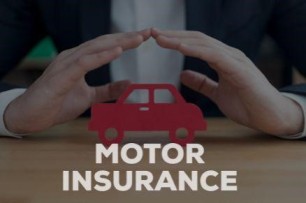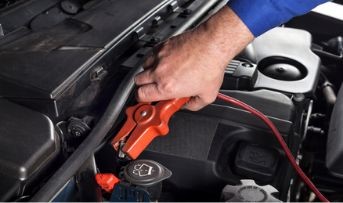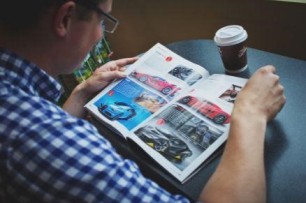General Insurance Blogs, Articles & Updates by - Magma HDI
Have us call you
- RENEW YOUR POLICY
- BUY NEW POLICY

With insurance digitisation, buying multiple policies and non-disclosure is a thing of the past
Unfortunate events are a constant risk that one must always be prepared for. While you may have an optimistic view of the future, the financial implications of a mishap are always too heavy to burden. Online general insurance is a financial product that comes in the clutch in such uncertainties to protect policyholders after paying a comparatively meagre premium. With the demand for insurance growing daily, the insurance sector constantly evolves to provide better services, more values, stringent regulations, and preventive mechanisms to tackle fraud.
Initially sold as a safety mechanism, online general insurance policies are now seen as more than they offer at face value. They are seen as investments, tax-saving opportunities, and more. However, some policyholders try to take advantage of loopholes in the policy wording to derive the most significant benefit by defrauding insurance companies by resorting to means like improper disclosure of facts, misrepresentation, etc.
With the recent wave of digitisation, the insurance regulatory authorities are setting their foot down and laying the framework for a transparent and non-conducive ecosystem for insurance fraud.
The issue.
Over the years, the insurance sector has seen an extreme change, from witnessing the risk-averse masses to offering facilitative services like online general insurance that are convenient for consumers with the benefits of additional features.
However, over time, the scope of the policies is being misinterpreted, leading policyholders to purchase multiple covers to increase their net insured sum payout. This has been noticed especially in the case of online general insurance, where various policies from multiple insurers are purchased to enhance the total payout.
The primary concern in such a situation is that each asset has a fixed value determined by careful expert assessment and evaluation. After risk evaluation, the premium, coverage extent, etc., are decided. Policyholders purchase multiple policies to override this constraint on the payout and often do not disclose the same to the existing insurer.
Another reason that caused the lack of complete data availability with insurers is the intense and duplicate paperwork. Customers used to skip several essential fields due to redundant questions and excessive effort.
The solution.
During times of heavy dependency on paperwork, it was difficult for insurers to identify such cases until the point of raising a claim. However, with technological advancements and the onset of the digital era, the insurance sector is not left behind in upgrading its ecosystem to tackle such concerns.
The account aggregator system, which is now applicable for all non-banking financial companies, data sharing concerning customers' investments and savings is set to transform the information availability for insurance providers.
The account aggregator system will make all relevant data available to authorised bodies electronically. The use of e-insurance accounts (e-IA) will only facilitate the process. While the e-IA, a digital portfolio of insurance policies held by an individual, is for the policyholder's benefit, the aggregator system makes all the necessary data accessible in a few simple clicks to prevent over-insurance, fact-check disclosures, and reduce paperwork.
The concerns.
Anywhere that data sharing takes place is seen as a significant concern due to the constant risk of data leaks, especially when dealing with such confidential information. However, the RBI has already announced and laid the foundation for an institution to take care of data collection and protection to assure policyholders and protect their interests.
As we progress technologically, we will be in a better position to respond to the dynamic demand across various sectors, of which insurance is one. Policyholders must take extra caution while evaluating and purchasing online general insurance policies to ensure their safety and comply with the relevant regulations.
Click HERE to buy online general insurance.
Disclaimer: The information provided above is for illustrative purposes only. To get more details, please refer to policy wordings and prospectus before purchasing a policy.

Top destinations around Mumbai for a perfect bike trip in the monsoon
Monsoons in India are the perfect season for wanderers to move out and explore places. With the slight drizzles and the perfect rainy-day playlist playing, it would be like a dream travel sequence come alive. And if you are a bike fanatic, you would agree that this weather is the perfect time to take your bike for a ride to get that much-needed break. Enjoy the valleys, the lush greens and the hills in the lap of nature, away from the chaotic hustle and bustle of the fast-paced city life.
Are you someone who lives around Mumbai or is planning to visit Maharashtra? If yes, we have curated the best places for you to make your road trip successful. This blog will discuss top destinations around Mumbai for a perfect bike trip in the monsoon. We have included all the details you need to check out and add that destination to your travel itinerary.
Whether travelling solo or with a companion, these locations will give you every opportunity you can grab to enjoy the rains and create memories for a lifetime. So, let’s get started!
1. Lonavala:
Lonavala has to be on our list and yours too. The forever obsession with the lush greens and the overall beauty of this place has not just mesmerised people in the state of Maharashtra but from every nook and corner of the country. You can take the old Mumbai-Pune highway to enjoy that bike ride you’ve been craving for.
And there is a list of beautiful places you can visit, starting with Korigad Fort, Rajmachi Fort (about fifteen kilometres from Lonavala), Tiger’s Leap, Lonavala Wax exhibition, Duke’s nose, Lohagad and much more! And, as Lonavala and Khandala are just five kilometres apart, you can head to Khandala and experience all the natural beauty of the valleys, waterfalls, etc., the place has to offer.
2. Mahabaleshwar:
The second most known and attractive destination in the Maharashtrian region is Mahabaleshwar. Being one of the longest driving routes near Mumbai, you can take your bike and let the wind do the talking. And if you are someone who always looks for a hint of adventure during their trips, then make sure to visit Panchgani (not very far from Mahabaleshwar) and grab the opportunity to experience paragliding.
Enjoy the surrounding views of the location wrapped in the foothills of nature from a height. The main attractions of Mahabaleshwar include strawberries and mulberries market, Three Monkey Point, Needle Hole Point, Wilson Sunrise Point, and much more.
3. Matheran:
The ride from Mumbai to Matheran is quite beautiful. Feel the calm and peace through your veins with a cold breeze against your skin. Unwind yourself while riding and feel energetic. As you reach Matheran, you will notice the absence of automobiles as the hill station is an automobile-free zone.
But don’t worry, you will have a lot of hand-pulled or horse-pulled rickshaws to take you around this marvellous and endowed with scenic locations which offer you the views of a lifetime. You can also plan to go on a trek to Matheran and have quality time with yourself or your company in the middle of the large trees and hills. The main attractions of this location include One Tree Hill Point, Louisa Point, Porcupine Point, Panorama Point, etc.
Other destinations making it to this list include Malshej Ghat, Durshet, Sula Vineyards, Pelhar Dam, Igatpuri and Alibaug. Remember that your bike is well serviced and has valid insurance to have a comfortable and memorable bike trip. Make sure to fit these important aspects into your travel schedule. While we are already talking about bike trips, purchasing the best two-wheeler insurance in India is a wise option to ensure your bike is safeguarded against all unforeseeable circumstances. The monsoon is here! Get your gear, pack your bags, and push the pedal towards serenity.
Click HERE to know more about the benefits of purchasing the best two wheeler insurance in
Disclaimer: The information provided above is for illustrative purposes only. To get more details, please refer to policy wordings and prospectus before purchasing a policy.

Legalities you should know before renting out your home
Renting a house is a time taking process. If not handled correctly, it can become a significant headache. Tenant misuse of the property or refusal to leave, late rent and maintenance fee payments, and hunting for new tenants are some issues you may encounter when renting out your home. As a precaution, homeowners may get landlord insurance, specialised home insurance to protect themselves against potential financial losses that may arise from tenancy contracts.
You can safeguard yourself, your rental business, and property as a landlord by being aware of your rights and responsibilities under the law.
1. Written agreement:
For the law to protect the interests of both tenants and owners, a written agreement is crucial to facilitate a smooth transaction. The agreement must be written up in legalese and signed by both parties. The copies are given to the tenant, and the owner retains the original. Tenants shall be compelled to pay rent once the owner delivers a copy of this agreement to tenants.
2. No discrimination:
Ensure you adhere to the Rent Control Act while marketing your property, selecting new tenants, or setting apartment rules. Any acts or policies must be fair to everyone and cannot be perceived as marginalising certain people but not others.
3. A tenant's eviction:
A landlord can only evict a tenant by providing advance notice and a clear explanation. Typically, the notice period lasts between 15 days and two months. The landlord is entitled to receive equal to twice the monthly rent if the tenants do not leave the property within the allotted time.
4. Access to landlord:
Once the lease is signed, the apartment becomes the tenant's property, and the landowner is prohibited from entering without their consent. The tenant may file a lawsuit against the landlord if he does this. He must give advance notice regarding apartment inspections, repairs, or improvements.
5. Property's maintenance:
Apart from normal wear and tear, unless the agreement states otherwise, the upkeep of the property is the joint responsibility of both parties. If the owner refuses to pay for the repairs, the amount can be withdrawn from the periodic rent. If the tenants refuse to pay for the repairs, the amount can be subtracted from their security deposit.
6. Restriction on rent increases:
In violation of the contract's provisions, the landlord cannot raise the rent. If it is specified in the agreement, there is a cap on how much he can raise the rent.
7. Necessary supplies:
Tenants have a fundamental right to amenities such as water, power, parking, communication links, sanitary services, etc. Even in the event of non-payment of fees, neither the renters nor the owners may stop providing these services. The local rent authority may step in, launch an investigation, impose penalties on the parties involved, and compensate others.
8. Security deposit:
Tenants are entitled to their security deposit reimbursement within one month of vacating the property. Before reimbursing the money, owners can subtract the responsible amount. A security deposit exceeding three times the rent cost is illegal to demand.
9. Payable rent:
The landowner and the tenant must agree on the amount of rent due as specified in the written lease agreement in the case of a new tenancy. The landlord must provide the tenants with three months' notice if the rent is about to change. The overall worth of the building, which includes the market value of some of the land, the cost of construction, and the importance of amenities, is typically used to calculate the chargeable rent.
Sometimes, the landlord and tenant have a verbal understanding, but it's preferable to document everything. A formal agreement must contain all the specifics so that both parties know their legal obligations. If the tenant under your lease agreement fails, your home insurance for landlords will cover the loss of rent. Always review the prevailing regulations and consult a lawyer knowledgeable in landlord-tenant legislation.
Click HERE to buy the best home insurance in India.
Disclaimer: The information provided above is for illustrative purposes only. To get more details, please refer to policy wordings and prospectus before purchasing a policy.

Understanding the importance of motorcycle windshields
Have you ever been riding your motorcycle in the crisp morning air, enjoying the cool wind on your face, and had a bug smack you right in the face? Although it makes for some good comic relief, it is one of the most annoying experiences a rider can have. The solution? Motorcycle windshields. A windshield is installed to deflect the wind from hitting your body while enjoying riding at high speeds. It also helps by providing the rider with a better aerodynamic outline than the body.
This blog gives you a better insight into motorcycle windshields so you can decide if it is a worthy addition to your motorbike.
Pros: 1. Wind protection
Motorcycle windshields help protect you from the wind blast to your face and chest. Mitigating the wind force against your face and chest helps combat back, arm, and neck pain. Less pressure on your body will result in a comfortable ride. If you're planning to ride your bike for more than a few hours, this tool will pay great dividends by the end of the day.
The windshield will divert hot and humid air in the summer and chilled and wet air in the winter. Although it cannot substitute for a good few layers of clothes, it also reduces wind chill when speeding down a highway. Similarly, windshields protect you in hot, dry weather as well. When driving down the roads at high speeds, your sweat dries up faster, resulting in dehydration. Dehydration can cause serious health issues and can put a damper on your driving experience.
2. Better aerodynamics
The stability of the bike decreases when there is drag in the air. When cruising down roads at high speeds, the body creates a fair amount of drag. Fortunately, one of the benefits of having a windshield on your motorcycle is that it makes a better aerodynamic outline than the body, resulting in less drag.
3. Less fatigue
The reduction of wind blasting helps reduce fatigue over long distances. Keeping your posture upright while the wind pushes into you seems like effortless work over short distances, but over long periods, it might be the reason you feel burnt out.
4. Debris protection
Debris gets kicked up by passing vehicles all the time. Your motorcycle windshield can protect you from this and make the ride much more comfortable.
5. Reduce wind noise
The sound made by the engine usually enhances the experience of riding a motorbike for bike enthusiasts. The purring of the machine is generally deafened by the wind noise at high speeds, which diminishes this experience. Motorcycle windshields can solve this problem of wind noise.
Cons:
The biggest and possibly the only downside to a windshield is its uncool and dorky look. A windshield makes a bike look less sporty, and many people find that very frustrating. Also, who wants to see their bike's dirty, scratched-up windshield?
Another con might be reduced visibility right in front of the motorcycle due to the windshield being tinted or dirty. This is a huge distraction and can cause accidents. The pros overwhelmingly outweigh the cons of installing a windshield. Especially in harsh weather conditions, these can be a lifesaver and can pay great dividends for a small investment.
The pros overwhelmingly outweigh the cons of installing a windshield. Especially in harsh weather conditions, these can be a lifesaver and can pay great dividends for a small investment. As we talk about investment, there's one more investment that you need to consider as a bike owner. Purchase reliable bike insurance to add an additional safety net to your two-wheeled friend. Consider buying 2 wheeler insurance online and save time and money in return for value-added benefits.
Click HERE to know more about buying 2 wheeler insurance online.
Disclaimer: The information provided above is for illustrative purposes only. To get more details, please refer to policy wordings and prospectus before purchasing a policy.

Top emerging technology trends set to bring a change in motor insurance
Technology has constantly been evolving and has been instrumental in all the big and small changes happening in the world. While there is a constant debate as to whether technology is a boon or a bane, it cannot be denied that our lives have been made easier by the many technological advancements made by humans. In today's age, everything is data-driven.
Starting from your date of birth to the last place you swiped your credit card is monitored and constantly fed to databases. Owing to the ever-growing gap between consumers' need to work and the ease with which they can achieve it, technology has taken centre stage and paved the path for accessible, hassle-free experiences. One such area is motor insurance. The rise of new technology has made its way into the world of insurance and is revolutionising services and interaction.
This article will discuss the emerging technology trends to change the motor insurance world.
1. Artificial intelligence:
The words artificial intelligence or AI are casually thrown around in everyday conversation. What is AI, and how is it changing motor insurance? In layman's terms, AI is the intelligence used by machines to undertake human-like tasks faster and more efficiently.
With the intervention of AI, insurers can meet the consumer's needs more quickly. AI is capable of finding unique tailor-made solutions to suit all your insurance needs. Insurers can access reports and data faster, thus speeding up the whole process.
2. Machine Learning:
The building blocks for artificial intelligence, machine learning is responsible for accessing, analysing, and modelling large chunks of data. A single run on these machine learning models can give a detailed analysis of every aspect of a person's life, given they have the data— pre-programmed algorithms to improve processing speed and yield accurate results. With machine learning, queries and identification can be made faster and effortlessly.
3. Internet of Things (IoT):
The concept of data privacy is lost on many people. People willingly give extra information if it means they can cut the prices. An extension of machine learning models and artificial intelligence concepts, IoT can process large amounts of data and automate the sharing process. IoT can also aid in risk assessment and mitigation to directly manipulate the new car insurance rates and the annual premium.
4. Chatbots:
Chatbots give you a human-like experience. With chatbots being used to their maximum potential, many insurance-related queries and doubts will be handled using these advanced bots.
Chatbots can efficiently communicate with customers; if they cannot solve a query, it will be forwarded to the person in charge. This helps everyone stay in the loop while not wasting time and resources. This produces fast and effective outcomes while assuring great on-the-go customer support.
5. Insurtech:
Insurance and technology together make insurance companies. They use the latest technologies to mitigate the insurance cost for customers and insurers. All the technologies mentioned earlier by insurance companies can revolutionise customer relationship management. They can use such tools to develop products that can help risk management and mitigation.
These were just a few of the many new technology trends that will take the world by storm. The rapid resurgence of technology can be scary and intimidating. Trusting technology-driven solutions might take some time for the common people, but the important thing to understand here is that technology can be a great friend if used correctly.
In the future, technology can assure surprising advancements in the insurance industry, which may promise new car insurance rates that will sit right in your budget while giving you the best covers and add-ons.
Click HERE to check out the new car insurance rates in the market.
Disclaimer: The information provided above is for illustrative purposes only. To get more details, please refer to policy wordings and prospectus before purchasing a policy.

Tips for transferring bike insurance from one owner to another
Owning a vehicle is a dream for many. In recent times, a vehicle has become a necessity. Be it a quick run to the nearby grocery store or taking road trips during the weekend, automobiles have become the new favourite investment for most people. Since the prices of cars and bikes are increasing daily, potential buyers are forced to have a second thought. While some people opt for loans or EMIs to pay for their motor vehicles, others prefer using second-hand cars.
In India, it is illegal to drive around without motor insurance. As a second-hand vehicle owner, transferring the insurance and understanding the nuances of the same can be challenging and intimidating. This article is here to help you understand the process better so that you can drive around worry-free.
Why is it essential to transfer the insurance policy from the previous owner to the current owner?
If the insurance ownership is not transferred to the new owner, then according to the law, the new owner can be charged legally. Not only that, if the vehicle were involved in an accident without having the name on the policy papers, the new owner would not be able to make any insurance claims. Without the insurance cover, the owner will be liable for all financial costs arising from an accident.
Let's look at the steps involved in transferring insurance ownership from one owner to another:
1. The vehicle's former owner must write an application to the RTO upon selling the bike.
2. Fill out a form at the RTO and submit RC, emission certificate, insurance papers, and fitness certificate.
3. Do not forget to carry valid IDs and passport-size photographs of the applicant.
4. The applicant must submit forms 28 (No objection certificate) and 29 (states the selling and purchasing of the vehicle between two parties) to the RTO.
If the buyer and the seller live in the same state, then report the transfer of ownership to the RTO within two weeks of buying the vehicle. The report must be made within forty-five days if both parties do not reside in the same state.
If selling an old vehicle, the seller must provide all details about the buyer and the bike to the motor insurance provider so that they can stay informed and updated.
After you visit the RTO where your bike is registered, you will need to submit a few forms along with the insurance papers and other required documents. The insurance provider might check the vehicle to ensure if it is in working condition and issue a fitness certificate. After submitting all the files, the RTO will verify and transfer the insurance to the new owner.
What are the benefits of insurance transfer?
1. If the new owner causes an accident, they cannot hold the seller accountable as the insurance papers are in the name of the new owner. This way, you can evade litigation and accountability for the damages caused.
2. NCB: If you have not claimed your vehicle's insurance before the transfer of ownership, then you are qualified for a No claim bonus. During the insurance transfer, you can collect a certificate of eligibility for NCB that can be applied to your following policy.
These were a comprehensive list of all things to remember while undertaking insurance transfers. As mentioned above, the seller and buyer can reap benefits from an insurance transfer. Do not forget to initiate the transfer as soon as possible to avoid legal hassles and financial obligations.
Remember to check out other benefits of policy transfer with your motor insurance provider and ask if there are options for add-ons to the existing policy. This will help you safeguard your vehicle as per your needs.
Click HERE to find out more about motor insurance.
Disclaimer: The information provided above is for illustrative purposes only. To get more details, please refer to policy wordings and prospectus before purchasing a policy.

Dents are not the only things that can ruin your car’s fresh paint job
Your car's aesthetics are important to public perception of its value. The first thing that everyone notices about a vehicle is its glossy, shining exterior. For an asset that doubles as a symbol of wealth, it is essential to check car insurance price in India to protect your vehicle against accidents and ensure the upkeep of its exterior appeal.
We all wish to protect our car's fresh paint job at any cost. Most of us believe that dents are the primary cause that ruins them. However, it is not so. Let us look at the factors other than dents that can ruin your car's fresh paint job.
1. Dust:
Dust is a major enemy of your car's fresh paint job. It may contain high iron that causes rusty discolouration and corrosion to the car's paint. Do not rub the dust settled on your car body with your hands or a dry cloth. It may damage the paint and cause scratches. Always wash off the dust with water and soap, and get your car paint waxed to protect it from external damage.
2. Fuel spills:
Often, fuel spills on the car paint while refuelling the car at a petrol pump. This causes permanent damage to its paint. The damage is usually more when the painted panel is not from the factory and has been repainted. Avoid filling your car tank to the brim, so fuel does not drip out. Even if it does, immediately clean it with a soft cloth, so it does not form a permanent stain around your fuel inlet and damage your car paint.
3. Stickers:
Big attractive stickers are available in the market to make your car look fancy and trendy from the sides, front bonnet, or rear. But have you wondered how they will impact your car paint when you remove them? Do not put stickers on your car's exterior, especially if it has returned from a fresh paint job. They have strong adhesives on them and will ruin your car's paint when taken off forcefully. Worse, they may start peeling off by themselves in bits and parts and make your car exterior look ugly.
4. Car covers:
Car covers are made to protect your car's exterior and paint, right? Surprisingly, even they can damage your car's fresh paint job. Car covers made of thick fabric or non-breathable material trap moisture inside them. They can cause rust formation from oxidation in the long run and damage your car's body and paint. Also, a car cover made of thick fabric can cause scratches and ruin your car's new paint job after coming in contact with the dust on your car's exterior.
5. Excessive sun:
Exposure to too much sun also ruins your car's fresh paint job. Excess sun exposure deteriorates the paint quality and starts fading and cracking after a while.
6. Tree branches and road debris:
If you park your car under a tree regularly, broken twigs and branches might damage your paint job. They can cause unwanted scratches and cause the paint to crack too. Road debris can have a similar effect on your car's paint. If you regularly drive through broken roads full of rubble and potholes, there is a high chance that they will clash against the sides of your car and ruin the paint.
Besides protecting your car's paint from external damages, buy car insurance that will provide financial assistance in case of accidents, damages, malfunctioning, or theft. Evaluate car insurance price in India from various companies, and choose the policy that provides you with the best protection at the most reasonable prices.
Click HERE to check car insurance price in India.
Disclaimer: The information provided above is for illustrative purposes only. To get more details, please refer to policy wordings and prospectus before purchasing a policy.

These seven factors determine your car insurance cost
Car insurance costs can vary significantly depending on various factors. The total price you give at the beginning of policy renewal is the cost of the car insurance. In this article, we will look at a few factors responsible for the total cost of your car insurance.
1. The model of the vehicle can significantly determine the cost of your insurance. The more the market value of the car, the more will be the insurance cost. If your vehicle has good engine capacity, advanced technology, and electronic features, the overall cost of your insurance will be higher.
2. The geographical location is a lesser considered factor when it comes to car insurance. If your location is the face of extreme weather conditions such as rains and cyclones, then it is likely that the costs will increase. These are not just limited to natural calamities. Human-made disasters like riots and vandalism also fall into this category. Areas prone to riots and destruction can lead to heightened insurance costs.
3. Driving records are one of the most crucial factors that decide the cost of your premium. If you have a clean track record with no accidents or speeding tickets, then it is highly likely that your insurance costs will reduce. If it is proven that you are a responsible driver, then it automatically translates to lesser chances of accidents and danger. On the other hand, even if you have one ticket or one accident under your belt, the insurance costs can drastically change.
4. Suppose you have never raised a claim or are eligible for a no-claim bonus when you sign up for your online motor insurance renewal. In that case, insurance companies will provide you with a hefty discount on the insurance costs. If no claims have been made so far in your tenure, it proves that you are a responsible driver and a car owner. All these are extra points that the insurance companies consider while calculating the final cost.
5. If you have opted for voluntary deductibles, then the overall cost of the insurance falls automatically. However, this will not be possible if you take third-party insurance. Ensuring that you as an owner will pay a pre-determined amount in case of accidents and damages is a sign of assurance that you will not partake in malpractice to take unlawful benefits of the insurance system. Due to this, insurance companies will provide you with a low-cost insurance policy.
6. Digital insurance is the new policy in the market. With everything digitised, companies can cut costs on operations. Hence, they can offer better policies at lower price points. Consider opting for an online motor insurance renewal to understand digital insurance better. You will get a perfect walkthrough of the online procedures.
7. The type of fuel that you use in your vehicles can also determine the cost of car insurance. If your vehicle runs on CNG or diesel, then the cost of insurance will be more than that of cars running on petrol. Not only that, but the mileage also decides the overall cost of your insurance. These factors contribute to the overall IDV or the insured declared value. The higher the IDV, the more the cost of car insurance.
These are some of the factors that affect the cost of the car. Remember that proper maintenance and aftercare will help your vehicle run smoothly for an extended period. You must provide timely maintenance and servicing to keep your car working correctly and efficiently. Add more value to your vehicle by investing in good car insurance offers available in India. If your car insurance is about to expire, let this article remind you to opt for online motor insurance renewal for a contactless and hassle-free experience.
Click HERE to find out more about online motor insurance renewal.
Disclaimer: The information provided above is for illustrative purposes only. To get more details, please refer to policy wordings and prospectus before purchasing a policy.

The pros of laser surgery for getting the correct eye vision
How often have you forgotten your spectacles at home and had difficulty recognising people's faces from a distance? These are some of the widespread yet frustrating problems people face with glasses. One of the most convenient and revolutionary technologies for solving this problem is laser eye surgery, popularly known as LASIK surgery.
With about a quarter of the world facing vision problems, it's not surprising that laser eye surgery is becoming increasingly popular. This blog aims to give you an insight into this technology and how it is revolutionising the world.
The need for LASIK:
When we look at a particular object, light from that object enters the eye and passes through the natural lens of the eye. This natural lens is responsible for correctly refracting the light to hit the retina. The eye's retina is responsible for focusing all the light and sending signals to the brain to help us interpret what we're seeing.
When light does not focus upon the retina correctly, vision can get blurry. This might be because the cornea isn't curved perfectly, or it can be because the eye lens present in our eye is slightly longer or shorter.
This refractive procedure is usually done to correct one of the following three vision problems: Myopia, Hypermetropia, and Astigmatism.
How does LASIK work?
Laser surgery is a procedure where the patient's cornea is reshaped by using an evolved cutting laser technology to help it refract the light to provide clear vision. Corneal reshaping is done by mapping the entire cornea precisely and then using this to plan the surgery accurately.
Pros:
1. Quick and safe – The most inviting aspect of this procedure is that it is a short one. LASIK takes only 10 minutes to mitigate your vision problems for each eye, so 20 minutes total to have perfect vision. It is also a very safe procedure, with 98 percent of people satisfied with the surgery's results.
2. Painless procedure – This procedure is entirely painless due to the eye drops your surgeon will apply at the beginning of the operation. Moreover, there is minimum post-operative pain, with no stitches or bandages required after LASIK.
3. Fixed cost – While the procedure is cumbersome on the wallet, it is a one-time investment. Glasses and contact lenses are cheaper than surgery, but they are building expenses with the cost of regular eye check-ups, lenses, and frames. However, there's a good chance LASIK is not covered by your insurance. Research online health insurance to find one that does.
4. Enjoy your favourite sports without fear – For many people, this surgery is not an option but a lifesaver. Whether you want to enlist in the police, army or play contact sports where wearing glasses is not an option, LASIK is the knight in shining armour if you don't want the hassle of carrying your lenses and lens cleaning solution everywhere.
Cons:
While this procedure has numerous advantages, there are some drawbacks too. You need to take several things into consideration before taking this big step. It is a huge investment and might burn a hole in your pocket if you're not ready. Like any other surgery, there are risks and side effects involved. Some side effects include dry eyes, a halo effect with bright light, and poor night vision. Consult your eye specialist before making any decision.
Although laser eye surgery is relatively quick and painless, you must take proper precautions. Avoid using any eye makeup or lotions around the eye for about three days before the surgery. Also, make sure to arrange a ride back home because you might not be able to drive right after the surgery due to blurred vision and the sedative. As most insurance plans might not cover the cost of laser eye surgery, it is best to research online health insurance to understand the terms.
Click HERE to know more about online health insurance.
Disclaimer: The information provided above is for illustrative purposes only. To get more details, please refer to policy wordings and prospectus before purchasing a policy.

Budgeting your travel plans in advance can prevent feeling a pinch
We all have experienced planning a vacation with our family or friends, checking the travel fares and hotel rates, and making a budget for our trip. However, a harsh shock awaits us when we try to book the flight, train, or hotel room close to our departure date. Last-minute bookings cost us extra, and we may not even get our preferred travel and stay options.
Last-minute holiday planning is almost always upsetting. Here, it would help if you also acknowledged the pinch of delaying purchasing personal accident insurance online only after the occurrence of a mishap.
Read on to know more about the benefits of budgeting for your travel plans in advance:
1. Soaring rates:
Airlines hike their flight rates closer to departure dates. Nowadays, train ticket rates are also priced on a flexi-fare system and get pricier as the travel date comes closer. Hotels also increase their tariff when demand rises. Therefore, the later you book, the higher you will have to pay for the same room.
2. Great deals and discounts:
Travel companies and websites offer great deals and discounts for early travel bookings. You get discounts on travel services, accommodation, rental cars, etc. Additionally, keep track of special deals and discounts that travel websites occasionally provide during festivals, special occasions, or off-season periods. Some companies also offer extra discounts for paying through a specific credit or debit card.
3. Planning for expenditure:
Budgeting your travel plans in advance can also help you save for your dream trip and be ready for it when you plan to go. Prepare a list of all the possible expenditures you may incur during travel. Make the possible reservations in advance so your travel expenditure is split up in parts and does not burden you in one go.
Proper budgeting of your expenditure will take away the stress from the process. You can streamline your payment and start saving more for your trip. You will not feel the burden of your travel expenses when you eventually go and will enjoy your trip with a free mind.
4. Extra time for research:
Every holiday destination has many options concerning the places to visit, travel modes, accommodation, sightseeing, etc. When you plan your trip in advance, you can thoroughly research the possible activities you can do there and find out the best rates for them.
5. Holiday rush:
Rates for travel, accommodation and other allied services shoot up during peak season and may pinch you hard. Make your travel plan well in advance and get confirmed reservations, along with saving a lot of your hard-earned money.
Travelling is a shared passion amongst a majority across the globe. However, it is by no means an inexpensive hobby to engage in. Always budget your travel plans in advance and prevent feeling a pinch in your wallet.
Similarly, Never compromise your safety behind the fun of going on a trip. With personal accident insurance online, you can avoid incurring financial upsets when you meet with an accident. Accidents don’t come announced and can cause heavy financial damage in the long run. Browse several personal accident insurance online, evaluate their pros and cons, and choose the most comprehensive coverage policy. Take all the necessary precautions and ensure that you have a safe holiday.
Click HERE to buy personal accident insurance online.
Disclaimer: The information provided above is for illustrative purposes only. To get more details, please refer to policy wordings and prospectus before purchasing a policy.

Financial blunders: Things you should know before investing
Managing one's finances and accumulating wealth are essential activities that one must learn right from childhood. However, since most parents do not talk much about finances with their children, young adults grow up without knowing much about critical financial decisions like how to buy general insurance online, investing fundamentals, savings, etc.
Investing is an ideal way to grow one's wealth. The drastic price dip and sheer boredom during the pandemic introduced new investors into the stock market. However, you should avoid those rookie mistakes that most investors make with their money. This blog presents some common financial blunders you should consider before investing.
1. Constantly consuming media about the market:
It is very tempting to watch news channels that offer trading advice 24*7. These channels give what seems like certain information, but it is not advisable to take advice straight from them as they have no idea about your financial situation. Additionally, when this information has been made public, it has already been factored into market pricing, and listening to them becomes futile. Seasoned experts in the market take their information from several independent sources and then derive their conclusions.
2. Being unclear about your investment goals:
Make sure you are clear about the direction of your investing journey. After having a separate savings account that serves as your backup in case something goes wrong, the rest of the money is safe to invest. A common mistake most individuals make when investing is to expect high returns as the end goal. While making money is important, you should balance it with the amount of risk you're willing to take, and that should be determined by looking over your other financial goals.
3. Too high expectations and a lack of patience:
Investments can be of two kinds, short and long-term investments. While short-term investments provide greater returns, they are riskier. Give long-term investments adequate time to maximise your returns. Bailing out before an asset has matured because of fear is one of the most common mistakes you should avoid.
4. Inadequate diversification:
Don't put all your eggs in one basket, even if it seems like the safest basket in the world. Often, investors make the mistake of putting all their money into one investment they believe will be secure for quick returns. This may be disastrous if the market moves another way. Diversify your portfolio to get consistent returns. Ensure you diligently research various asset classes and associated risk levels to identify the best returns at your risk appetite.
5. Letting emotions get in the way of your investments:
Too often, investors will fall in love with a particular company due to its value proposition or its past performance. However, it is essential to understand that the stock is only here to make you money. So, when the company's fundamentals no longer align with your interests, consider selling the stock.
Fear and greed are the greatest adversaries of an investor. They should not come in the way of your financial decisions. Market returns vary significantly in the short term but are generally predictable in the long run. To be more tension free, buy general insurance online after adequate research.
Investing sooner than later is one of the best decisions you can make. This gives you time to learn how the market functions. Most people fail to enter the stock market because they believe they don't possess the basic knowledge it requires. But this is a skill learned on the job. Start by investing significantly less money and increase it as your confidence increases. Happy investing!
Click HERE to buy general insurance online.
Disclaimer: The information provided above is for illustrative purposes only. To get more details, please refer to policy wordings and prospectus before purchasing a policy.

Here are some situations where your car may need a jump start
Owning a car entails a considerable amount of responsibilities. You must take care of it adequately to maintain its functionality for long periods. Before you start driving, you must know how to keep it properly and prevent any breakdown. From knowing how to drive to changing your wheel if it gets punctured to checking all the fluid levels, there's plenty to learn and explore.
Additionally, you may also require expertise in jump-starting your car. Jump-starting your car is a viable alternative to starting your vehicle when using a key doesn't do the trick. You must know how the battery functions and why and when you should jump-start. If you do not learn the basics, you can cause severe damage to the car.
There may be several instances when you may presume the need to jump-start. However, to avoid damage, you must know when your vehicle needs a jump start and when it does not. This way, you can deal with your car better and more efficiently. Regardless, you should always buy the best car insurance in India to protect your vehicle against all damages.
This article will list all the possible reasons your car needs a jump start. They are –
1. Low battery:
Being low on battery is one of the biggest reasons for jump-starting your car. You'll probably need to jump-start your car if you have a low or dead battery. It is because your car would not start on its own. This may also arise if the battery needs to be heated up more. You'll experience this more often during cold weather. Batteries can give up due to old age as well.
2. Malfunction of starter:
If there is no problem with your battery, we move on to the starter. The starter may be dysfunctional. It can either be contaminated or extremely old. It can also malfunction due to corrosion. The best way is to check for weird noise that the starter might make. Often even jump starting does not ignite the car's engine if the starter is broken.
3. Bad spark plugs:
The ignition system has a built-in system of intricate parts that keeps it going. If one of them malfunctions, the car may not start. Apart from the starter, the spark plug is also included in the ignition system. It can malfunction due to clogging or contamination due to oil leaks. This can prevent the car from starting, and it may most certainly need a jump start.
4. Clogged or contaminated fuel lines:
Sometimes the problem is not with the ignition system or even the battery. In such a case, the problem lies in the fuel lines. If they are frozen or clogged, the fuel may not rush smoothly to the engine. This can disrupt the smooth start of the vehicle. It can be solved by jump-starting, but it will start creating problems again. Your car may stop in the middle of the road if it is not resolved soon. Jump-starting is not the permanent solution here.
Jump-starting a car is a practical way to rescue you from an emergency and help you reach the service centre or garage. However, it is not a permanent solution to fix the delay in running your vehicle. If you wish to have a smooth experience with your car, practise the preventive maintenance tips provided by the manufacturer.
Additionally, you must purchase the best car insurance in India that offers comprehensive protection against all maintenance and accident-allied costs. Car insurance can benefit you when your car demands high repair costs or, in the worst case, a total loss due to extensive damage.
Click HERE to buy the best car insurance in India.
Disclaimer: The information provided above is for illustrative purposes only. To get more details, please refer to policy wordings and prospectus before purchasing a policy.

Why does the motorcycle engine feel smooth and throttle response crisp in the morning
The feeling of riding a motorcycle in the morning is otherworldly. But it's not only the early morning atmosphere that gives this ethereal feeling to the rider. It's also the smooth functioning of the engine and the swift and excellent acceleration of the motorbike in the morning. Many people experience this but do not pay much heed to why this happens.
This blog aims to make this phenomenon more understandable for curious bike fanatics.
1. Reduced friction:
The smooth ride that the engine provides in the morning and the minimum noise directly result from the engine's internal temperature. However, other parts of the engine maintain their temperature even when kept at rest throughout the night. Due to the thermal expansion of metals, there needs to be a proper gap between various working parts of the engine.
For example, to permit the expansion of the piston, there is a gap within the block of the engine. There is less friction, resulting in less noise in the morning due to this gap between the piston and the cylinder wall in the morning. This occurrence applies to almost every moving part of the engine.
2. Viscosity:
Another reason the engine feels smooth in the morning is the oil's viscosity. Viscosity is inversely proportional to temperature. In the early morning, the engine oil is cold, making it denser in volume. This higher viscosity accounts for maximum lubrication in the engine, which results in the smooth running of the bike.
3. Fuel management systems:
As far as better crisp acceleration in the morning is concerned, the fuel management system of the bike is the most responsible. The bike's fueling is divided into two- either fuel and air can be mixed proportionally by a carburettor, or the fuel is atomised at high pressure, mixed with clean air, eventually entering the engine's combustion chamber.
Carburettors give you a crisper throttle response due to the richer mixture between fuel and air. But nowadays, these are slowly being phased out due to the increasing pollution by carburettors.
So, do you really need to warm the bike up before starting it? This is another question that greatly puzzles bike enthusiasts.
There's no real need to warm up an engine for more than a minute before starting it. For a long time, all bikes used a carburettor for combustion. This type of engine tends to run poorly until appropriately warmed.
So, there is still a misconception that you must let the engine warm up before you start riding it. But it would be best if you were careful about hammering the throttle before the engine has gotten all nice and warm.
Riding a motorcycle gently for the first few miles is a good idea because putting the engine under extreme pressure while still cold increases the chances of damage and breakdown.
This damage is dangerous and can result in the maintenance fees burning a hole in your pocket. The best solution to counter this is investing in a good bike insurance that pays great dividends.
Click HERE to know more about bike insurance plans.
Disclaimer: The information provided above is for illustrative purposes only. To get more details, please refer to policy wordings and prospectus before purchasing a policy.

Here’s how you can support the driver while riding along as a passenger
Driving is an activity that requires extreme carefulness, responsibility, and special attention at all times. One tiny mistake can lead to significant damage to a person and property. Road accidents are frightening and can even prove to be fatal. Hence, being on your best behaviour when driving is recommended.
However, accidents while driving can take place due to a variety of reasons. One of them is the disturbance from your outer surroundings. This can also include the distractions that your passenger may create. It may induce driving concerns and cause road accidents or violations of road safety rules.
Apart from the driver, the passengers must also be highly responsible and dutiful while the car is in motion. They can play an essential role in maintaining peace inside the vehicle. If you're a co-passenger and want to contribute to the vehicle's safety, here are a few ways. Regardless, you should have private car insurance in India to protect yourself and your vehicle.
Let's discuss here how you can support your driver by being a responsible co-passenger.
1. Be attentive:
If your driver is getting distracted by texting or calling on the phone, call them out on their behaviour. It can be dangerous even if they talk with the passengers in the back seat. You must stay attentive to such situations and speak up whenever necessary. Politely request them to focus on the road.
2. Don't draw attention:
You can help your driver focus by not distracting them by any means. You should not talk to them unnecessarily or argue with them in the car. Emotional responses can distract the driver. Moreover, you should refrain from clicking pictures or showing them things on your cell phone. You should lay low and avoid all these activities.
3. Be careful of your surroundings:
You can easily be the co-driver for your driver by being extra cautious on the road. You can help them navigate busy streets by being their additional set of eyes. You can also help them read road signs, point out intersections, or alert them about possible hindrances they may fail to see.
4. Put on good music:
Good music can make the atmosphere inside your vehicle cheerful, serene, and lively. It can calm the nerves of your driver and help them focus better on the road. You should take control of the music in the car. You can put some of the driver's favourite tracks in a playlist on shuffle. This way, they need not constantly touch or operate the music system.
5. Keep quiet:
Small talk with the driver is alright, but you should refrain from having a full-fledged conversation that can distract the driver. You should not shout, yell, or sing loudly in the car. All these can make your driver lose focus completely. You should pause the music or stop talking when a congested road is approaching.
6. Stay out of sight:
You need to lay low and stop obstructing the view of your driver while driving. You should not physically block the driver from seeing the road well. They should also be able to see outside the windows. Apart from that, you should always be an adjusting and supportive co-passenger.
These are just some tips and tricks that you can use to be a good passenger inside the vehicle. It can lead to lesser accidents and mistakes on the road. A car journey becomes enjoyable and safe when the driver and co-passengers have a good understanding and coordination. The more focused the driver is, the better. Don't forget to buy private car insurance India and safeguard your finances against loss due to accidental damages to your car.
Click HERE to buy private car insurance India.
Disclaimer: The information provided above is for illustrative purposes only. To get more details, please refer to policy wordings and prospectus before purchasing a policy.

What factors influence car insurance premiums for SUVs and sedans
Driving a car without insurance is considered illegal in India. Automobile owners weigh the pros and cons of different options available in the policy market. Before buying car insurance, people consider various factors such as covers, add-ons, services, premiums, etc. In this article, we will be talking about premiums and how they can vary depending upon the kind and size of your car.
What is a premium?
A premium is an amount you pay your insurer to keep your policy valid. The duration of payment can vary from monthly to quarterly to annual payments.
What factors affect the premium?
1. Model and make of your vehicle
2. Engine capacity
3. The driving experience of the policyholder
4. Age
5. Location
Besides the points mentioned above, previous claims and traffic violations can also affect your insurance premium.
We better understand what premium is and how they can be affected. Let's look at premiums for SUVs and sedans.
1. The make and model:
Car insurance can vary significantly depending upon your car's size, make, and model. If you intend to buy an SUV or a sedan, remember that these models are charged the highest premiums. Putting in ample research into the car model and the respective insurance premium is essential.
2. Driving record:
Another crucial factor that decides the total cost of your premium is the driving experience. If you have no records of accidents, then the premium rates can be significantly lower. Even a minor skip such as running a red light or speeding ticket can affect the premium rates too. Insurance companies analyse your driving records to understand the risk associated with your driving and how likely you are to get into accidents. The more the chances of accidents, the higher the premium rates.
3. Location:
If you live in an area with high crime rates, the insurers tend to charge higher premiums.
The premium amounts can be excessive if your locality is prone to crime and vandalism.
4. Coverage and add-ons:
Coverage and add-ons are the services insurance companies provide when you buy an insurance policy from them. If you opt for the basic package and maintain a good driving record, the insurer will likely settle for a lower premium.
5. Age of the vehicle:
The age of your vehicle is another factor that insurance providers consider when offering insurance. The depreciation value of your vehicle increases with time. Adding to that is the wear and tear that the vehicle went through over the years, reducing the value of the car. Therefore, older cars will have a lesser premium.
6. Engine capacity:
The CC or the engine capacity affects the premium and higher the CC, higher the premium. And since SUVs and sedans have higher CC, their premiums are also higher.
7. Engine type:
Cars running on petrol have lesser premiums than cars running on diesel. A vehicle running on CNG has a higher premium than diesel engines. If you intend on adding a CNG unit to your sedan or SUV, keep in mind that the premium costs will increase significantly.
8. Modifications:
Modifications that alter the look or performance of your car will have a higher market value. This, in turn, will increase the cost of the premium on the vehicle. The look and feel of the car is a lesser talked about factor when it comes to insurance prices.
These are some factors that affect the premium of your insurance coverage. Irrespective of the kind of vehicle you buy, the points mentioned above determine the overall cost of your insurance. Before finalising your car insurance renewal, do not forget to look through various insurance providers and their services for a price best suited for your needs.
Click HERE to know more about car insurance renewal.
Disclaimer: The information provided above is for illustrative purposes only. To get more details, please refer to policy wordings and prospectus before purchasing a policy.

Explained: Zone-wise Co-pay Waiver, the new optional cover in Magma HDI’s OneHealth insurance
OneHealth, Magma HDI’s flagship health insurance is an all-encompassing solution with five plans tailormade to suit a customer’s needs. With state-of-the-art features and a bucket of add-ons, OneHealth provides a solid financial shield in case of a health exigency.
What is zone-wise pricing in health insurance?
Insurers offer zone-wise pricing to strike a fair balance in health insurance premiums, especially for customers in smaller cities. Hence, it may so happen that premium for a similar health plan differs as per cities, especially between metros and non-metros. There can be multiple reasons for this.
a) Hospitalization costs are relatively lower in smaller cities vis-à-vis metros
b) In most instances, the insured will opt for treatment only in their home city / town
c) Moreover, it may be assumed that people living in metros or tier 1 cities could be more susceptible to lifestyle diseases, and thus the higher premium
Hence, insurers try to pass on the benefit of lower cost of hospitalization to customers hailing from smaller cities. Having said that, most of the insurers offering zone-wise premiums have a co-pay clause for policyholders who want to avail treatment from a higher zone, which they bear during their claim settlement.
Zone-wise Co-pay Waiver Optional Cover
In Magma HDI’s OneHealth insurance, the zones are classified into Zone 1, 2 and 3:
- Zone 1: Delhi including National Capital Region, Mumbai including Thane, Navi Mumbai, Vasai-Virar, Bangalore, and Gujarat
- Zone 2: Coimbatore, Pune, Hyderabad, Chandigarh, Chennai, Kolkata, and Kerala
- Zone 3: Rest of India
One of the latest optional covers added in OneHealth is the Zone-wise Co-pay Waiver. As mentioned above, the premium rates of a health insurance product are fixed as per the zone opted for in the policy (Zone 1, 2 or 3). Zone 1 calls for the highest premium, followed by Zone 2 and Zone 3. If the insured undergoes a treatment in a zone higher than the one opted for in the policy, he must pay an additional co-pay amount which is charged as a fixed percentage of the claim amount. The existing OneHealth insurance plan has the following co-pay:
| Premium paid as per zone | Zone where treatment is taken | Co-pay |
|---|---|---|
| Zone 2 | Zone 1 | 25% |
| Zone 3 | Zone 2 | 20% |
| Zone 3 | Zone 1 | 35% |
Now, with the Zone-wise Co-pay Waiver Optional Cover, the insured can get this co-pay amount waived off if their treatment occurs in a zone higher than the one opted for in the policy. The cover is available across all plans and sum insureds.
Let us understand with an example.
• Mr. Parag, a 40-year-old from Amritsar plans to buy the OneHealth Secure plan for himself, his wife and two children, with a sum insured of INR 10 lakh.
• As Amritsar falls in Zone 3, Mr. Parag would have to pay INR 12,997 + GST as premium but would have to bear 35% co-pay on his claim amount if he ever gets a medical treatment done in Delhi (which falls in Zone 1).
• To avoid this, Mr. Parag can also opt for a Zone 1 premium i.e., INR 16,154 + GST for any eventuality. However, even this is 24% higher than the Zone 3 premium.
• Thanks to the Zone-wise Co-pay Waiver optional cover, Mr. Parag would only have to pay INR 14,362 + GST and get a Pan India coverage.
| Premium Amount | Additional Amount | |
|---|---|---|
| Premium paid on buying policy in Amritsar (Zone 3) | INR 12,997 + GST | 35% Co-pay levied on claim amount if treatment taken in Zone 1 areas |
| If opted for Zone 1 premium | INR 16,154 + GST | 24% higher premium |
| If opted for Zone-wise Co-pay Waiver Optional Cover | INR 14,362 + GST | Only 11% higher premium, and 0% Co-pay levied |
An insured can also opt for this optional cover at the time of renewal. However, a waiting period of 1 year shall be applicable for renewed policies. No waiting period is applicable for this optional cover, if opted while buying OneHealth for the first time as fresh or portability policy. In case this cover is discontinued by the customer, and again opted for subsequently, the 1-year waiting period shall start afresh.
Know more about Magma HDI’s OneHealth on WWW.MAGMAHDI.COM/ONEHEALTH-INSURANCE

Here are a few top magazines you can follow if you're a sports car enthusiast
Who doesn't love cars? We all do. But then there is a different set of people who especially love the sporty and stylish category. What is so special about these sports cars apart from the speed and looks? Only sports car enthusiasts can describe their passion for this!
Are you someone who is looking to read more about sports cars? If yes, we've got you. In this blog, we have curated a list of magazines which would give you all the information about the world of elite sports cars, their history, latest developments, upcoming launches and their features and technology. Let's get started.
1. Autocar India:
Autocar India magazine is one of the oldest circulated car magazines in the world. The magazine talks all about cars, headlines of the world of cars, their new features, road tests and their results, used cars, new launches, upcoming models, and much more. The Autocar India magazine is the Indian edition of the British magazine about automobiles published by the Haymarket Media Group.
2. Car India:
Known as one of the most informative car magazines, Car India has everything a car lover needs to satisfy their curiosities. This magazine explores every nook and corner of the car manufacturing industry.
It brings you the details and the latest trends and developments in newer and older car models, information about cutting-edge technologies, innovation taking place in the automobile sector and much more. Get a subscription as soon as possible and quench your inner car fanatic's thirst with this great piece of content!
3. Auto Today:
Looking to choose between two cars but are confused? Don't worry. Auto Today magazine is going to solve all your problems. You've got all the information you need in this magazine- car reviews, comparisons in features, user reviews, testimonials, statements from car manufacturers and companies, advice, pointers to be careful about before buying your new car and a lot more.
You do not need to sit and browse through everything and strain your eyes. Get clear and compact information through the Auto Today magazine to help you make an informed decision.
4. Autocar Professional:
This magazine gets delivered fortnightly. The leading Indian Business to Business (B2B) magazine, Autocar Professional, talks about heavy and intricate details about cars. The magazine's content is calculated and compiled after extensive research in the automobile sector. If you enjoy learning about the minutest of details and are interested in the field of car analysis and study, Autocar Professional is the magazine you should opt for.
It identifies the patterns in manufacturing and other processes, making it a crucial resource for people keen on learning about automobiles. The magazine also contains insightful and crisp interviews, direct vehicle sales and accurate data regarding production and technologies. Want to see what goes on in the deeper end of the automobile sector? Subscribe to Autocar Professional magazine and get your brain motor churning.
Evo India, Overdrive magazine, Motoring World magazine, TransREporter, and Commercial Vehicle magazine are other renowned names sports enthusiasts can look into. These magazines give you quality information and the current developments, insights and analyses of different trends, performances, sales, etc.
Now that we have your attention and know that you love cars, it would be best to talk about taking care of your vehicle and safeguarding it against any damages in unprecedented circumstances. Just reading about cars, their models and features are not enough. If you own a car, invest your time and money in exploring various insurance options and purchase the best car insurance in India. Car insurance provides the perks of ensuring the safety of your vehicle and being assured of the expenses involved in its maintenance and repair.
Click HERE to know more about the benefits of the best car insurance in India.
Disclaimer: The information provided above is for illustrative purposes only. To get more details, please refer to policy wordings and prospectus before purchasing a policy.

Beginners guide to writing a fitness blog
Content marketing is at its peak with the fast-paced development and boom in the social media industry. Big and small businesses have invested a lot of capital in content creation and marketing. And one of the essential parts of the whole content and creative game is blogs. You will observe that every brand has a blog page on its website. These blogs are carefully curated and optimised to reach the target audience better. The content is about its brand, what it stands for, its products, the consumer benefits, the causes they support, etc.
The health and fitness sector has also seen immense growth in the number of people reading about different trends, health issues, diets and exercise. Health-focused brands ensure that their website stays flooded with content that enriches the customer experience and brings them the needed traffic. But what if you are just getting started in the health industry? Don't worry. We've got you.
This blog is a beginner's guide to writing a fitness blog. We will discuss the crucial factors you need to pay attention to and cover as you go ahead with your content. Let's get started.
1. Ambitions lead the way:
Before starting your fitness blog, you must determine what you want to achieve through your blog journey. There are several things one can achieve in the health and fitness industry. But it is vital to determine the value and impact you wish to create in your audience's life. Why and how your work will be different from others and what your mission and ultimate vision are some questions you need to analyse before you proceed.
2. Narrowing it down:
It is crucial to find your niche before getting started with your blog. Narrowing it down to what you want to solve through your content helps you find your niche. You can start with writing about important stuff your audience should know and would appreciate reading. But as you progress, you can circle it down to specific topics about fitness you would love to enlighten your readers on. This will help you in mastering that particular niche.
3. What's in a name:
If you think your blog name does not matter, you are wrong. In the infinity pool of current content, blog names matter a lot. If they are quirky and easy enough to catch someone's eye, they could interest your target audience in exploring your blogs. And, if they find your blogs interesting and valuable, they might suggest it to their contacts which would benefit you in bringing organic traffic to your website.
4. A domain is the main:
Now that you have figured out the starters for your blog, it is time to set up your website. But, you will require a domain before working on your website. You can either purchase a domain or use hosted sites on which you can pay a nominal fee and customise your websites the way you want. Self-hosting can be done through a blogging platform (for example - WordPress), and then you can pay the required fee to keep your content on the site.
5. Strategy is important:
Now that you are up and running with your website, it will be your priority to develop a content strategy to curate content for your blogs and market it according to the current trends. You will have to think and rethink your plan from time to time to keep pace with the content writing and marketing world.
That's a wrap on the beginner's guide to writing a fitness blog. While we are talking about health and fitness and how essential taking care of your body and mind is, especially in the current day and age. Your blogs can also discuss health insurance policy and spread awareness about its importance through your writing.
As many of us tend to forget how urgent and vital it is to look after health insurance policy renewal, spreading knowledge to others on crucial topics like health is a significant step in itself. Bring the above points into practice and create the best content that educates your readers with the "mantra" to a fitter lifestyle!
Click HERE to know more about health insurance policy renewal.
Disclaimer: The information provided above is for illustrative purposes only. To get more details, please refer to policy wordings and prospectus before purchasing a policy.

Ten best tips for female travellers to ensure safety while travelling
We all are aware of the saying “safety comes first”. And while travelling can provide you with the adventures and experiences of a lifetime, it is essential to ensure your safety during your trips. Having fun should not come at the cost of risking your safety. It would be best if you were watchful about several things while on the road to your destination. Always be mindful of the safety concerns and risks while planning your stay and an itinerary.
And when it comes to female travellers, there is no doubt that they need to be extra careful about their safety. Many travel groups are curated just for women so that they will feel safe and can travel without any looming fear or stress. Are you a female traveller taking your first solo trip or someone who is looking for specific safety tips and reminders?
This blog will discuss the best tips for female travellers to ensure safety while travelling. Let’s get started:
1. Be thorough with the online reviews of the hotels or homestays you might consider booking for your travel. If you find something fishy or if any review seems “too good to be true”, or if there are any “fake indications” in the study, refrain from booking a room in that particular hotel.
2. Go through the maps and existing itineraries of your travel route and destination. See what fits your budget, look for safety directions, and search for how people felt about that particular experience. And then make a decision.
3. Always keep your emergency contacts informed. Let them be aware of your location and stay calm if you land up in an unforeseen circumstance. Call for help in case of an emergency.
4. Keep the police’s number: 100 on the speed dial so you can use it if necessary.
5. Always keep pepper spray and other legal safety equipment you can use in times of distress. You must know how to use them and avoid being casual and playful about them.
6. Avoid visiting shady places you feel are not safe during the night time. Make sure to get acquainted with people and families in your hotel, so you do not feel alone. Get their contact details so you can use them in an emergency.
7. Learning the local language and a few important words will help you communicate with the locals in case you land up in a problematic situation. You should pick up commonly used terms to help you with the interaction.
8. Packing light is essential. This will help you in better planning and easy travel. Carrying excessive weight will be difficult for you while commuting from one place to another. You can ensure the safety of your valuables by leaving them in the hotel.
9. Learning self-defence for future trips would benefit you greatly in times of distress. It will also help you gain the confidence to travel alone.
10. You can opt for all women travel groups, public transport and staying facilities to ensure you are comfortable and feel safe throughout your trip.
These were some of the best tips for female travellers. Include them in your travel checklist to ensure your safety while not compromising on the fun. And while we are already talking about female safety during travel, it would be a wise option to talk about safeguarding yourself against unprecedented mishaps you might land up in through no fault of your own.
In this case, insurance helps. Make insurance a part of your travel essential. You can explore different personal accident insurance plans and research their benefits. You can purchase personal accident insurance online and stand a chance to get discounts with lower premiums and hassle-free buying procedures.
Click HERE to know more about different personal accident insurance plans.
Disclaimer: The information provided above is for illustrative purposes only. To get more details, please refer to policy wordings and prospectus before purchasing a policy.

The ultimate theme park guide to planning a memorable family trip
Theme parks are the unrivalled choice for having an incredible time with your family. From exciting rides and fireworks to riveting stage shows and tasty treats for the little ones (and adults alike!), they are the perfect place for planning a family getaway.
While going to a theme park may seem fun and games, it can get stressful if not planned accordingly. You may end up with crying toddlers and grumpy adults. This blog will give you some tips to make this family getaway unforgettable.
1. Plan expenses:
Theme parks have a bad reputation for being expensive, but this is quickly addressed with a good strategy. Before buying the tickets directly from the official websites, doing your research is necessary. Find the perfect theme park that fits your budget and try to get coupons and promo codes that help reduce costs. Plan a budget for the day that includes everything, from rides to the food to buying small souvenirs to remember the day. Stick to the budget, and there will be no regrets.
2. Dress to impress:
Pack cameras, extra batteries, and plenty of films to capture all the unforgettable moments that you'll all laugh at years later. Have fun with it! Wear matching outfits or quirky family T-shirts to stand out from the crowd. At the same time, it is essential to wear comfortable, loose clothing to stay cool and fresh in the hot weather.
3. Food and Water:
Drink ample water to stay hydrated and active throughout the day to make the most out of the day. Even mild dehydration can cause headaches which can be worrying and may spoil your mood. It is also helpful to carry some snacks or munchies with you (if it's allowed on the premises).
4. Research rides in advance:
The worst thing about theme parks is the hour-long waits that are seemingly inevitable to go on your favourite rides. So, before the day of the trip, decide which rides interest you and your family members the most and finish those up before rush hour begins. If there are kids in your family, researching height requirements in advance is a surefire way of avoiding meltdowns.
5. Pack all essentials:
Be prepared for the sun, rain, and the wind like a true pro. Sunscreen, hats, sunglasses, raincoats, and umbrellas are necessary when braving the outdoors. Pack a first aid kit in case someone gets motion sickness or headaches. If travelling with a toddler, bring all their requirements – nappies, sippy bottles, and small toys to keep them engaged.
6. Don't overstretch yourself:
While travelling, people often forget that breaks are essential. If travelling with kids and the elderly, take plenty of timeouts and pit stops for refreshment. While entering the theme park, locate a region with shade where you can all go if someone gets tired or sick. Overstretching yourself is a recipe for disaster. You may never know what might happen. Choose a proper general insurance plan to be prepared for unforeseen circumstances.
7. Avoid peak times:
Weekends and national holidays are theme parks' busiest times of the year. These are the least suitable times to venture to these places. You won't be able to enjoy the most iconic rides and eat their famed pretzels. Mondays are the least crowded, so consider planning the trip then, getting there early, and enjoying all the rides before the rush hour.
The most important thing is to enjoy your time in these parks. But these parks are also places that are prone to accidents. From getting a phone stolen to having a medical emergency, one should be prepared for everything. General insurance can be your secret ticket to stay happy and relaxed while on vacation. Invest your time and do good research to buy insurance from the best general insurance companies in India.
Click HERE to know more about general insurance companies in India.
Disclaimer: The information provided above is for illustrative purposes only. To get more details, please refer to policy wordings and prospectus before purchasing a policy.


